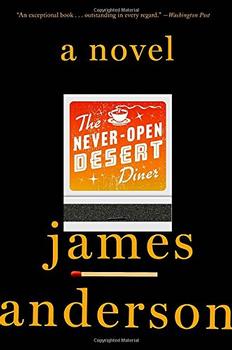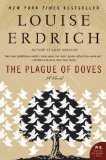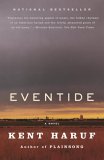Summary | Excerpt | Reading Guide | Reviews | Beyond the book | Read-Alikes | Genres & Themes | Author Bio

James Anderson's debut novel, The Never-Open Desert Diner, starts off as an entertaining portrait of life in an American desert but gradually transforms into a grim thriller by the end.
The narrator is Ben Jones, a truck driver and delivery man whose route covers a sparsely populated stretch of highway in the southern Utah desert. He is the area's lifeline, one of the few people accepted by the iconoclasts who call the area home, primarily because he's an outcast himself and understands that the residents live this isolated existence for reasons they don't care to discuss. Eccentric characters abound, such as Walt Butterfield, the 79-year-old proprietor of the Well-Known Desert Diner (so named because it had been featured in a number of movies) who keeps his restaurant in tip-top shape but hasn't opened it in over 30 years – and chases away prospective customers with a shotgun. Another is Reverend John who lugs a 10-foot-tall wooden cross along Ben's route in the hope of attracting congregants to the institution he founded, the First Church of the Desert Cross, "denomination unknown and unimportant." The author acquaints readers with several such denizens in the first few chapters before introducing a fascinating newcomer to the area: Clair, an alluring and mysterious woman Ben encounters squatting in the model home for an abandoned housing development in the middle of nowhere. Clair's appearance triggers a series of events that turns the plot from a pleasant work of fiction to an increasingly suspenseful mystery as long-hidden secrets come to light.
At first the book reminded me of Fannie Flagg's writing, with its quirky characters, light humor and ability to portray life in a specific region of the country. But, as the plot progresses it becomes darker and more complex than any of Flagg's offerings, retaining the aforementioned characteristics while adding unexpected facets, creating a truly unforgettable novel. It starts out as a light-hearted romp but by the conclusion, morphs into something entirely different.
Anderson displays an exceptional gift for characterization. He draws the minor characters as idiosyncratic without sacrificing authenticity; each one seems to be a real-life (if somewhat peculiar) individual that readers could well have met. The protagonist is especially likeable and realistically portrayed – a true hero with a good heart beneath his rough and road-weary exterior; his narration is dead on, giving readers a true sense of the person the author is depicting. For example at one point he opines, "The old saying about what doesn't kill you makes you stronger is a nice sentiment, but it isn't true, not on 117. Out in the desert what doesn't kill just pisses you off and will probably kill you the next time." The setting is also inspired – not to mention convincingly rendered - and it almost becomes a character in its own right.
Underpinning the brilliant characters is the author's truly outstanding writing, rich with description:
The rain started before I got back to my truck, just a few huge, round drops that cratered the sand and dirt with loud plops. As is often the case in the desert, the sky directly over my head was blue and clear. The heavy clouds, what there were of them, hugged the rim line of some distant hills. No thunder or lightening. These drops were the scouts, dispersed by wind, announcing the deluge that would arrive shortly. It took less time than I anticipated. A few minutes later the rain pelting my truck sounded like firecrackers. My wipers couldn't move the water off my windshield fast enough to allow me to drive more than thirty miles an hour.
I enjoyed the involving and original plot even though it gets somewhat convoluted toward the end, with unexpected and perhaps unnecessary twists. Also, the author's characterization isn't even across the board; when the bad guy does finally appear he's a bit cartoonish. Otherwise the novel is a stunning debut. Its pitch-perfect tone and vivid descriptions make this one a winner, and I look forward to other books by this very talented author.
![]() This review was originally published in The BookBrowse Review in April 2016, and has been updated for the
November 2016 edition.
Click here to go to this issue.
This review was originally published in The BookBrowse Review in April 2016, and has been updated for the
November 2016 edition.
Click here to go to this issue.

If you liked The Never-Open Desert Diner, try these:

by Louise Erdrich
Published 2009
The unsolved murder of a farm family haunts the small, white, off-reservation town of Pluto, North Dakota. The vengeance exacted for this crime and the subsequent distortions of truth transform the lives of Ojibwe living on the nearby reservation and shape the passions of both communities for the next generation.

by Kent Haruf
Published 2005
Haruf returns to the small town of Holt, Colorado to continue the story he started in Plainsong (1999) with an engrossing and profoundly moving novel rich in wisdom, humor and humanity.
Your guide toexceptional books
BookBrowse seeks out and recommends the best in contemporary fiction and nonfiction—books that not only engage and entertain but also deepen our understanding of ourselves and the world around us.